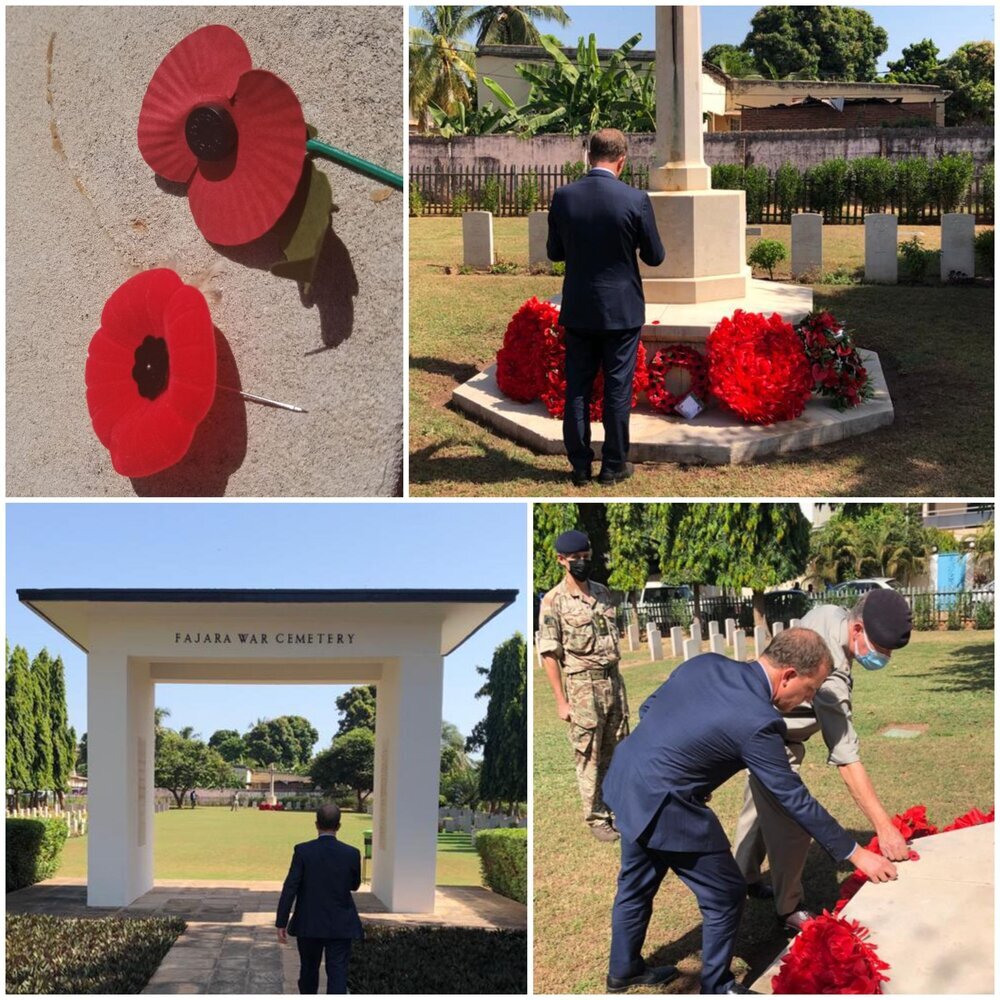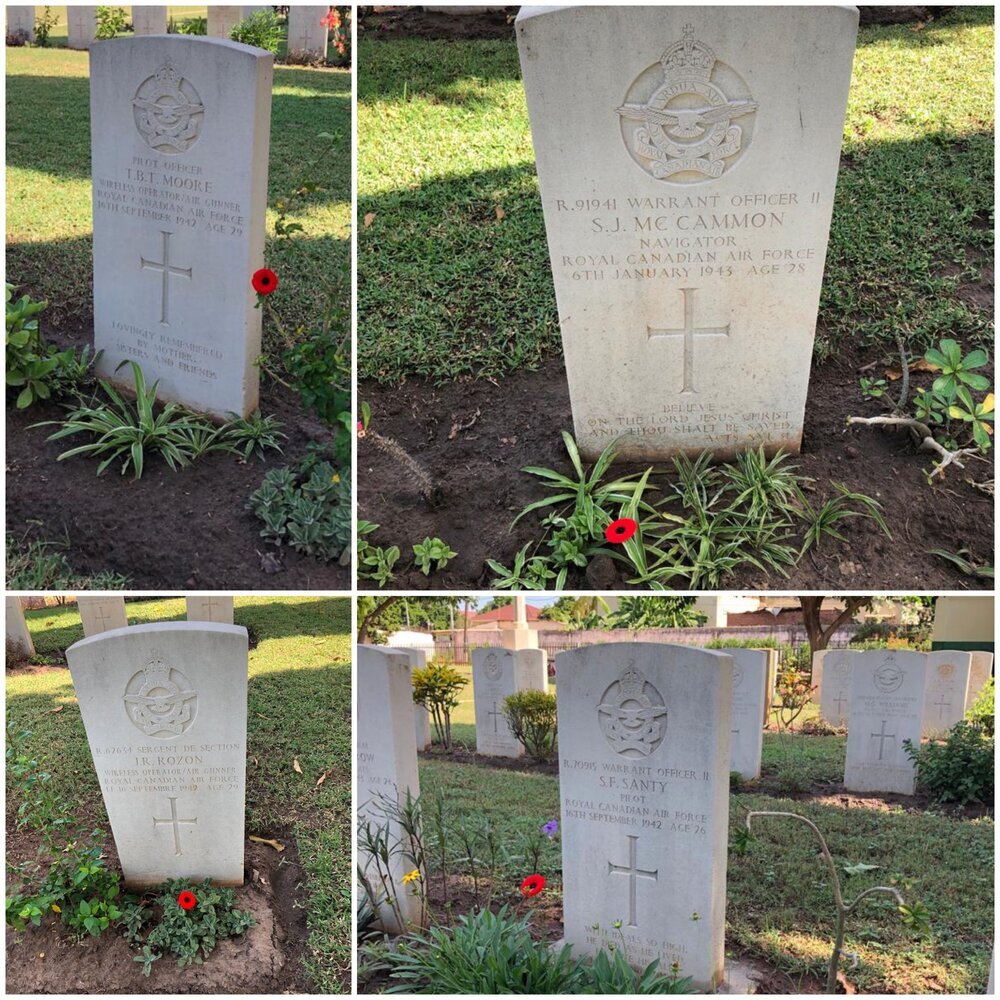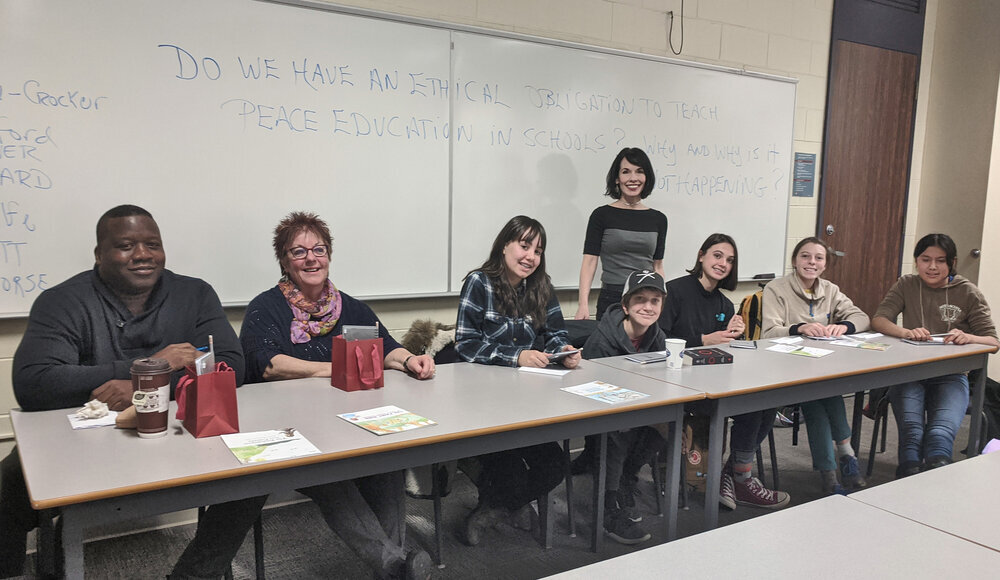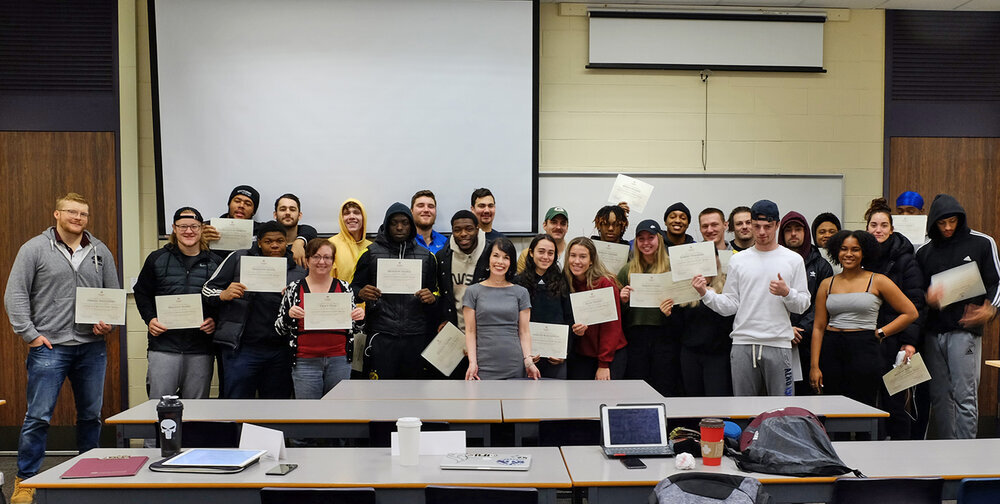A Canadian diplomat has expressed appreciation for the work of a Saint Mary’s Geography class, following his participation in Remembrance Day ceremonies in West Africa.
Sébastien Beaulieu, Ambassador-Designate to The Gambia, travelled this week to pay special tribute to 10 Royal Canadian Air Force servicemen who are buried at the Fajara Commonwealth War Graves Commission Cemetery. The airmen died in 1942 while serving with the 200 RAF Squadron and one had a Nova Scotia connection: Warrant Officer Basil Ralph Yorke was from Cumberland County.
It’s the first time an official Canadian delegation has honoured the fallen airmen. “Attending the ceremonies in person this week was important to me,” Ambassador Beaulieu said in an email exchange with Saint Mary’s.
“I find it very moving, as Canada's representative to The Gambia, that the many personal bonds between our two countries includes the fate of these brave Canadians from B.C. to Nova Scotia who died so far away from home, in WWII,” he said. “The research and field work of the students from Saint Mary's, led by Dr. Cathy Conrad, which was conducted in 2018, has helped connect the dots and contributed to ensure that these Canadians continue to be properly honoured and remembered.”
In the fall of 2018, Dr. Conrad’s Geography International Field School class did a lot of prep work in advance of their trip to The Gambia. They planned to honour Gambian veterans in a local Remembrance Day ceremony during their stay in Banjul, not realizing at first that Canadians were also buried in the cemetery. A flurry of research here on campus and during their trip helped them piece together a largely forgotten chapter of history that took place nearly 80 years ago.
The fallen airmen had served as part of an effort to supply troops in Northern Africa, and to combat German U-boats in the Atlantic Ocean. When Conrad and her students visited the gravesite, they generated quite a lot of media attention in Banjul and Halifax. They also met Sharon Wardle, then British High Commissioner to The Gambia, who shared photos of the students that day on her Twitter site.
“This is how the Canadian Ambassador learned of us,” recalls Conrad. “He emailed me to learn more and we have remained in contact ever since. I can only hope that we will be able to meet with him in the future on West African soil.”
Beaulieu, who grew up in Moncton, shared his own Remembrance Day highlights this week on his Twitter site at @Beaulieu_CAN. “As a fellow Maritimer, I'm so pleased to witness the rich connections between The Gambia and Canada, and the ties with Nova Scotia in particular,” he said.
Conrad plans to offer the next Gambia field school next fall, if COVID-19 travel restrictions allow by then. She’s hoping to forge new connections between Saint Mary’s and the University of the Gambia, and also to assist with plans for a commemorative plaque at the site where a Canadian warplane went down.
“I’m very grateful for my students who were so vigilant in connecting the pieces of our WWII history in The Gambia, and for participating in a wreath laying ceremony two years ago,” says Dr. Conrad. “They should feel enormous pride in the fact that a Canadian Ambassador went this year, acknowledging their work. Although we wish we could have been there to attend with him this year (as was the pre-COVID plan), the fact that he reached out to us to recognize our efforts is greatly appreciated.”



















